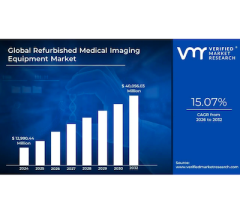
September 7, 2023 — American Society for Radiation Oncology (ASTRO) President Jeff Michalski, MD, MBA, FASTRO, will join today’s first stakeholder meeting of the President’s Cancer Panel, part of the National Cancer Plan to end cancer as we know it. The day-long virtual event is open to the public, and Dr. Michalski will speak from 11:00 to 11:30 a.m. Eastern time.
ASTRO, whose 10,000 members include radiation oncologists and other health care professionals who treat people across the globe using radiation therapies, is committed to achieving President Biden’s goal of reducing cancer mortality by 50% over the next 25 years. Radiation therapy contributes to 40% of global cancer cures, and more than a million Americans receive radiation treatments for cancer each year.
Dr. Michalski was invited to share how ASTRO and the radiation oncology community are contributing to the National Cancer Plan goals, including progress in efforts to develop effective treatments, eliminate inequities, deliver optimal care, maximize data utility and optimize the workforce (see all National Cancer Plan goals here). “Radiation oncology uses cutting-edge, clinically proven technology to destroy cancer cells, a rapidly evolving field,” he noted in prepared remarks. “New technologies are being developed all the time, which are making it possible to deliver radiation therapy more precisely and with fewer side effects.”
Dr. Michalski will also outline some of the challenges facing the radiation oncology community, including decades of disproportionate cuts to Medicare reimbursement. “Radiation therapy is a highly cost-effective cancer treatment,” he said. “Medicare spends less on radiation oncology for 340,000 beneficiaries than it does on just two cancer drugs for 88,000 beneficiaries.”
Earlier this year, ASTRO proposed the Radiation Oncology Case Rate (ROCR) program, a new way for Medicare to pay for radiation therapy care that would enhance access and quality, reduce disparities and lower patient costs. It also would move payment from volume-based to value-based by reimbursing radiation therapy services on a per patient basis, rather than per treatment. ROCR would align financial incentives with clinical guidelines, including those supporting shorter, more patient-friendly treatment regimens when appropriate. “By decoupling payment from volume, we are moving toward a more patient-centered system of care by supporting shorter treatments for certain cancers and reducing toxicity,” said Dr. Michalski.
ROCR would also create a Health Equity Achievement in Radiation Therapy (HEART) payment to reduce disparities by providing patients from rural and underserved communities with transportation assistance for their daily radiation treatments. Dr. Michalski explained, “Our patients cite transportation hurdles as the number one reason they may not be able to complete their treatments.” ASTRO’s ROCR program includes gold-standard quality and safety initiatives, ends decades-long declines in Medicare payments, aligns payment incentives with evidence-based care and unifies payments across different care settings for all patients. “Ensuring radiation therapy facilities are close to where our patients live is key to completing treatment, improving outcomes, and increasing survivorship,” said Dr. Michalski.
At today’s meeting, Dr. Michalski will join representatives from the National Cancer Institute (NCI) and other oncology stakeholder groups. The meeting will be led by the President’s Cancer Panel members, Dr. Elizabeth Jaffee, Dr. Carol Brown and Dr. Mitchel Berger.
The National Cancer Plan, a long-term framework for progress in cancer research and care, is a hallmark of President Biden’s administration. The plan was released by the NCI on April 3 and represents a collaborative effort among cancer researchers, clinicians, patients, advocates and other stakeholders. ASTRO is proud to be a part of this important collaborative effort to improve prevention, early detection, treatment and survivorship in cancer care.
For more information: www.astro.org


 February 04, 2026
February 04, 2026 









